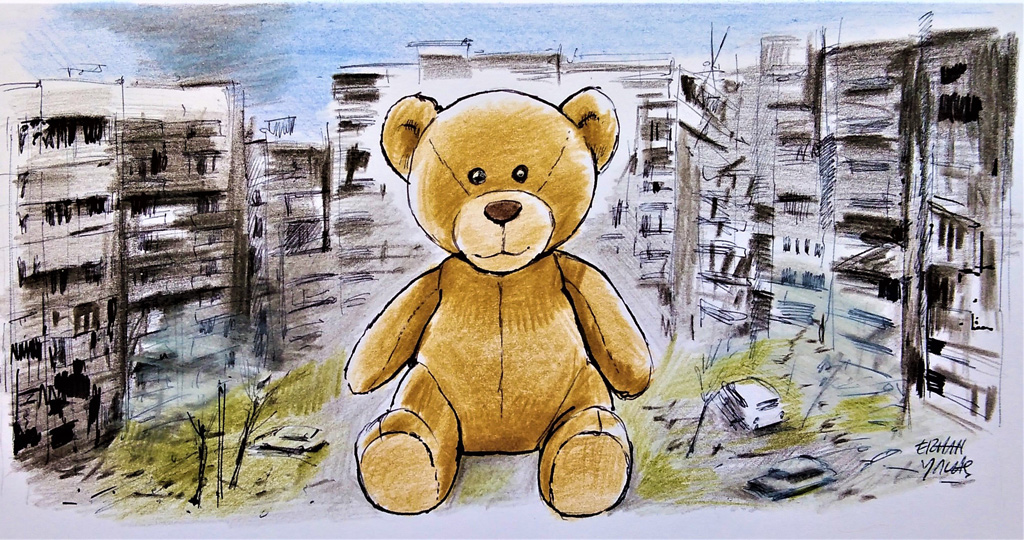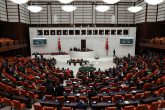As the Russian forces retreat from the outskirts of the capital Kyiv, the course of the war in Ukraine changes. With the images from Bucha fueling anti-Russian sentiment around the world, it would not be surprising for the campaign, which accuses Russian President Vladimir Putin of committing war crimes, to gain momentum. At the same time, it has already become clear that some scenarios that were written around the start of the Russian invasion on Feb. 24 will not become reality: We no longer hear about the likelihood of the Russian conquest of Kyiv and the toppling of Ukraine’s President Volodymyr Zelenskyy’s government, or the possibility of Moscow gaining control over the Ukrainian territories to the east of the Dnieper River, thus dividing the country into two.
The current question relates to the mission of the Russian forces in Ukraine’s eastern and southern territories now that they have repositioned themselves after declaring that the first stage of the operation has been completed. Will there be a limited occupation to unite Crimea and Donbass, or a more comprehensive invasion to cut off Kyiv’s access to the Black Sea?
The Western alliance’s severe economic sanctions and strong support to the Ukrainian army, along with the poor performance of the Russian military and the fierce resistance of Ukraine’s armed forces and civilian population, changed the course of the war. Notwithstanding, Putin has scaled down the conflict as part of a new strategy. Indeed, he was compelled to make that decision due to military considerations. Had the Russian president failed to make that call, his venture into Ukraine could have proven more costly for Russia than the disaster in Afghanistan. It remains to be seen whether Putin’s decision will distract the world from what is happening in Ukraine.
‘First stage’
Washington views the Kremlin’s decision to withdraw from Kyiv’s outskirts, under the pretense of having completed the “first stage” of the operation, as a “strategic defeat.” Despite maintaining that Putin’s occupation of Ukraine was a serious strategic miscalculation, what happened does not seem to warrant that description just yet. After all, Russia has not given up on its goal of forming a line between Donbass, Crimea and even Odessa in Ukraine’s eastern and southern parts. The Ukrainian Foreign Minister Dmytro Kuleba recognized that the fighting would be more fierce in those regions by saying that “the actual war” was about to start “in the south and Donbass.” That statement attested to Ukraine’s increasing self-confidence, signaling that the West will provide additional military support to Kyiv. Yet, Putin seems unlikely to abort the mission to take Donbass and unite it with Crimea. As such, there is every reason to expect fierce fighting around Donbass – even if the negotiations continue.
Russia-West future
Obviously, the Kremlin could portray its control over certain territories as a “victory” on the homefront. The question is whether Russia could mitigate the pressure that it currently faces by scaling down its operations. Could it break its Western-imposed isolation? Will Moscow get the Europeans to comply with its decision to sell natural gas in exchange for the ruble? Keeping in mind that a significant part of the world, except the United States and the European Union, has not imposed sanctions, it is clear that Moscow could use its decision to scale down the operation as an advantage.
It is also obvious, however, that the world has come to see Russian military power in a different light. The Russian army’s wartime performance was below par in terms of human rights and effectiveness. Indeed, all countries in the Russian sphere of influence have duly noted that Moscow’s “great military might” could not make them bow by using conventional methods.
Another important question is whether the decision to scale down operations will contribute to the success of the negotiations. Could Putin withdraw from Ukraine without taking over any piece of land? Is Zelenskyy likely to give up Donbass (and, possibly, other regions) after Crimea?
It seems that fresh developments could take place on the battlefield and at the negotiating table amid those questions.



